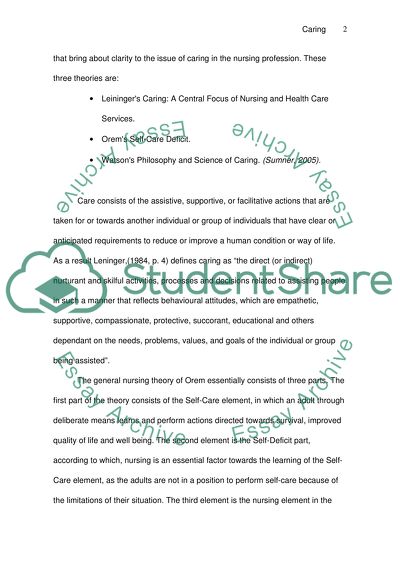Cite this document
(“The Concept of Caring in Nursing Essay Example | Topics and Well Written Essays - 2750 words”, n.d.)
The Concept of Caring in Nursing Essay Example | Topics and Well Written Essays - 2750 words. Retrieved from https://studentshare.org/nursing/1540780-a-2500-word-analytical-essay-on-caring-title-of-essay-is-caring
The Concept of Caring in Nursing Essay Example | Topics and Well Written Essays - 2750 words. Retrieved from https://studentshare.org/nursing/1540780-a-2500-word-analytical-essay-on-caring-title-of-essay-is-caring
(The Concept of Caring in Nursing Essay Example | Topics and Well Written Essays - 2750 Words)
The Concept of Caring in Nursing Essay Example | Topics and Well Written Essays - 2750 Words. https://studentshare.org/nursing/1540780-a-2500-word-analytical-essay-on-caring-title-of-essay-is-caring.
The Concept of Caring in Nursing Essay Example | Topics and Well Written Essays - 2750 Words. https://studentshare.org/nursing/1540780-a-2500-word-analytical-essay-on-caring-title-of-essay-is-caring.
“The Concept of Caring in Nursing Essay Example | Topics and Well Written Essays - 2750 Words”, n.d. https://studentshare.org/nursing/1540780-a-2500-word-analytical-essay-on-caring-title-of-essay-is-caring.


